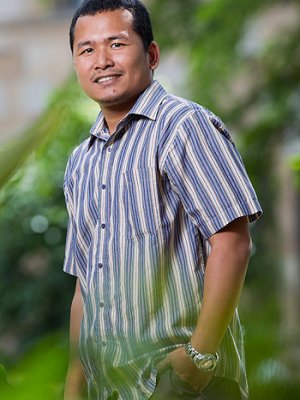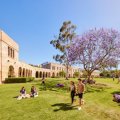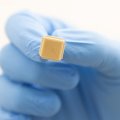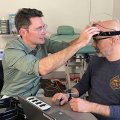
A UQ graduate is using his skills to reduce child mortality rates in a remote part of Indonesia.
Jerico Franciscus Pardosi is currently working on an AusAID project in the Nusa Tengara Timur Province (Ende District) where a significant number of children die during birth or under the age of five due to unknown causes.
“These statistics are terrifying. There are inequalities accessing health services across Ende in relation to antenatal care and it is important to do an in-depth analysis to determine the unknown causes of death in this region,” Mr Pardosi said.
Notably, the death toll for infants and children under five is three times higher in rural than urban areas in Ende District.
Research undertaken during his Masters of International Public Health allowed Mr Pardosi to complete field work in Indonesia supported by his advisors from UQ’s School of Population Health, Dr Chalapati Rao and Dr Timothy Adair.
Mr Pardosi is currently a junior researcher for the National Institute of Health Research and Development in the Centre for Public Health Intervention Technology in the Ministry of Health in Jakarta.
He leads antenatal care and birth delivery research in Karawang District, West Java, and also manages the Health Science Journal of Indonesia. He hopes to become a leading expert in the region in the field of maternal and child mortality research.
Mr Pardosi is a recent recipient of a UQ Indonesian Alumni Award, which was announced during a senior UQ delegation to the region last year.
The honour has allowed Mr Pardosi to share his research experience and build ongoing health research collaboration between UQ and the National Institute of Health Research and Development in areas including HIV-AIDS. His next career step is to undertake a doctorate at UQ.
“I would not have this job today if it wasn’t for the excellent support and opportunities I had during my time at UQ,” Mr Pardosi said.
“Doing a PhD will help my career and allow me to delve further into the mortality issues that Indonesian children are facing.
“My PhD will provide a pathway for me to assist in reducing infant mortality by educating families and influencing health systems.”
The University of Queensland has awarded more than 13,000 research higher degrees to graduates who have now become leaders in all areas of research, society and industry.
UQ higher degree programs include the Doctor of Philosophy (PhD) and Master of Philosophy (MPhil). If you are interested in finding out more about research opportunities, contact the Graduate School UQ Advantage team at uqadvantage@gradschool.uq.edu.au or 07 3346 0508.
Media: Jerico Pardosi (+62 8131 671 2787, jerico.pardosi@uqconnect.edu.au) or Dr Jessica Gallagher (07 3346 0508, j.gallagher@uq.edu.au)
.jpg)











